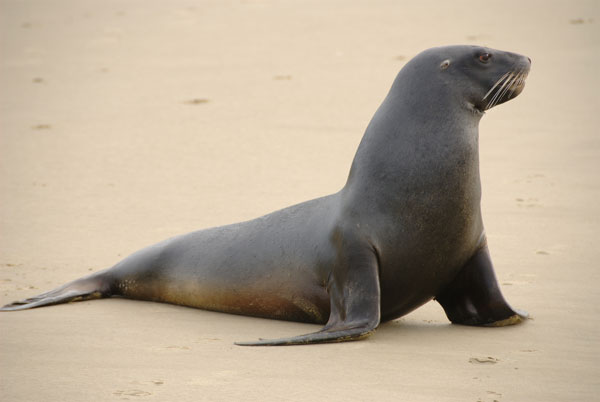Carnivores lose the ability to feel sweet
The American Journal of Proceedings of the National Academy of Sciences on March 12 published a study by European and American scientists that many carnivores seem to lose their ability to sense sweetness over time.
According to scientists at Monell's Sensory Center in Pennsylvania, USA and University of Zurich, Switzerland, most mammals are thought to be able to sense sweet, aromatic, bitter, and salty tastes. and sour.
After describing the process of sweet taste buds lost in domestic cats and wild cats due to a genetic defect, the team studied 12 different mammal species that live mainly on meat and fish, copper. Time to pay attention to the gene for sweet taste receptors is Tas1r2 and Tas1r3 .

Sea lions have lost their ability to feel sweet.
Results showed that 7 of these 12 species have different levels of variation in Tas1r2, making them unable to sense sweetness, including sea lions, large ear seals, harbor seals, and otters. Asian baby claws, spotted hyenas and bottlenose dolphins.
Sea lions and dolphins - two species believed to have evolved from terrestrial mammals tens of millions of years ago, tend to swallow whole food and do not show any taste preference. sweet.
In addition, dolphins seem to have three inactive taste receptors, indicating they do not feel sweet, aromatic or bitter.
However, mammals are often exposed to sweet tastes, such as the American panda, Canadian otter, four-eyed bear and red fox, which retain Tas1r2 genes, indicating they can still sense the taste. Sweet even if only eating meat is the main thing.
Mr. Gary Beauchamp, senior author and behavioral biologist at Monell, affirmed: 'Our findings provide more evidence that the animals, including humans, like to eat depend significantly. into their basic taste receptor biological function ".
- Cool the body and eat sweet peppers to help
- Interesting discovery about the sweet taste of pandas
- Why should sweet potatoes be eaten?
- The brain compensates for the loss of vision
- The best time to eat sweet potatoes
- Detects sweet and sweet properties of Salmonella and its ability to cope with this bacterium
- The great cavalry when eating sweet potatoes, know that avoid if you do not want to 'carry serious disease'
- Learn the mysteries of centipedes that amaze you
- High-yield Hoang Long sweet potato
- A lot of water lunch helps lose weight
- Things to keep in mind when eating sweet potatoes in winter help prevent cancer
- The benefits of sweet corn that you don't know yet
 Animal 'suffering' after hibernation
Animal 'suffering' after hibernation Why do goats climb well?
Why do goats climb well? Scientists were surprised to see chimpanzees eating turtles
Scientists were surprised to see chimpanzees eating turtles Giant catfish died deadly due to drought in Thailand
Giant catfish died deadly due to drought in Thailand